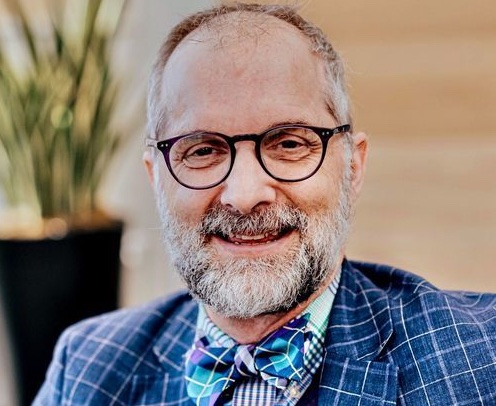As part of the Feb. 21, 2023 edition of Jeff Selingo’s “Next Office Hour,” Charles Koch Foundation Executive Director Ryan Stowers had the opportunity to interview Dr. Jon Mott, founder and CEO of Aspire Ability.
Aspire Ability is a talent marketplace that uses a combination of competency mapping and proprietary technology to connect learners to educators and employers. The organization, which works primarily in underserved and underrepresented communities, also offers its own talent marketplace data to educators to ensure these community-based programs offer local learners the competencies they need to get the best employment opportunities available.
RYAN STOWERS: Why are you passionate about Aspire Ability’s work?
JON MOTT: What we’re really trying to do is help more people get better jobs. A lot of the passion for that comes from the fact that, at root, I’m a teacher. I’ve worked in education technology, higher ed, corporate learning and development, and adult ed so I’ve kind of seen all sides of this market that helps get people ready for jobs.
What we have is this three-side talent marketplace with job seekers, employers, and educators. They’re all trying to do their best, but there are information gaps and so you’re getting suboptimal outcomes — particularly for the human beings, the job seekers, the learner-earners. You have way too many people who are earning and learning beneath their capacity because they don’t know how to find the right opportunities. That’s where the name Aspire Ability comes from. We really want to give more people that ability to aspire.
STOWERS: I know that as you dug into this work, there were some key gaps that you identified. Can help people understand what you observed and why you think we need to fix those gaps?
MOTT: Go back to that three-sided talent marketplace and start with the job seekers, or lifelong learner-earners as we call them. If you asked the average 18 to 80 year old, ‘How would you find a good job you’re interested in, that had growth potential and how would you know if you’re qualified for that job and how would you know where to go to prepare for that job,’ in most cases you would get a shoulder shrug. People don’t know.
That’s a big problem all by itself, but then when you dig in on the employer side, they are weak on their actual job descriptions. If you asked an employer if they 100 percent trust that your job description delineates the competencies that someone needs to fill a job, they probably would say no. Then you have educators who are doing their best to understand what the marketplace needs, but they don’t have the right data or it is generalized or incomplete. So they end up churning out students who aren’t aligned with what employers really need.
Those are the information gaps and there are a lot of laudable efforts going on, but we saw the need for a systemic approach to solving these problems.
STOWERS: Describe exactly what Aspire Ability does.
MOTT: Trying to transform the entire talent marketplace writ large is very difficult, so we work within defined communities. Right now we’re working with the Navajo Nation, for example, where there are about 150,000 adult workers. We are trying to help better define the jobs that are potentially available for this population — either current jobs or new ones that could be brought in — to help ensure tribal colleges understand the qualifications needed for these jobs. This effort will help people understand where they need to go if they want a job but don’t yet have the skills to fill it.
All of this comes together on the Aspire Ability platform where a person can say, ‘Here’s the job I’m interested in, here’s a diagnostic that tells me whether I’m a match.’ And if people need some upskilling, it’s a very quick click of a link to find a place where they can find a program to get them ready for that job.
STOWERS: I know you have just started, but can you tell me about your impact so far — how are you help learners reach their full potential?
MOTT: We helped one school see that there was a specific requirement for some jobs in the community that they weren’t yet providing. They are adjusting their curriculum. We’ve helped large corporations identify that they have had multiple listings — all written differently — for the same job. Not only was the overlap causing confusion, but there were also some equity issues that came up in the different descriptions.
I’ll tell you one specific story from our work with the Navajo Nation. There is this young man who was traveling two hours each way to work at a restaurant in Albuquerque just so he can have a little money each week. He wants to work — he’s desperate to work — but he couldn’t find any jobs near him that will help him aspire higher. That’s what we’re trying to transform.
The transcript of this conversation was lightly edited for length and clarity. Click here to watch the full replay of the Feb. 21 edition of Jeff Selingo’s “Next Office Hour.” The event featured CKF partners from Parker Dewey, AdvanceEDU, and Northern Virginia Community College. The conversation with Mott starts at minute 33 of the full replay.











